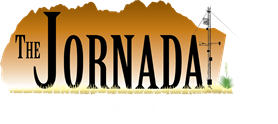| Title | Social-Ecological Processes and Impacts Affect Individual and Social Well-Being in a Rural Western U.S. Landscape |
| Publication Type | Journal Article |
| Year of Publication | 2020 |
| Authors | Brymer ABentley, Toledo DP, Spiegal S., Pierson FB, Clark PE, Wulfhorst J.D |
| Journal | Frontiers in Sustainable Food Systems |
| Volume | 4 |
| Issue | Article 38 |
| Date Published | 04/2020 |
| ARIS Log Number | 367947 |
| Abstract | As many rural landscapes in North America are utilized for agricultural production, research on the variability of land use and land cover trends primarily focuses on social-ecological dynamics and drivers of rural landscape change. Findings from such research improve our understanding of processes that alter landscape structure and function and inform strategies for agro-ecosystem management and conservation. However, to better understand how to conserve agro-ecosystems while balancing the needs of people who live and work across rural landscapes, it is critical to understand what people need to improve and sustain their quality of life and well-being. This necessitates the integration of perspectives, methods, and analytical techniques from scholarship on human dimensions of agro-ecosystems. Research that is designed to connect social-ecological dynamics and landscape change to social impacts and changes to well-being is better situated to inform land management strategies and decision-making for agricultural production policies. Turning to a case study of rural landscapes in southwestern Idaho, we asked livestock producers, public land and resource managers, recreation users, conservationists, and wilderness advocates to describe social-ecological conditions that support and degrade their well-being. Using grounded theory methodology, we analyzed semi-structured interviews to discover meanings of well-being and to understand how people experience changes to their quality of life in an arid rangelands context. Our findings support previous research that suggests well-being is multi-dimensional, while indicating that well-being is experienced at individual and community scales. We discuss our findings in the context of the USDA Agricultural Research Service’s national network for Long-term Agro-ecosystem Research (LTAR). The LTAR network is charged to identify strategies for sustainable intensification that support agricultural productivity, environmental quality, and rural community prosperity, thus providing opportunity for future research to assess trade-offs to individual and community well-being in response to social-ecological dynamics and land use change. |
| URL | bibliography/20-013.pdf |
| DOI | 10.3389/fsufs.2020.00038 |


